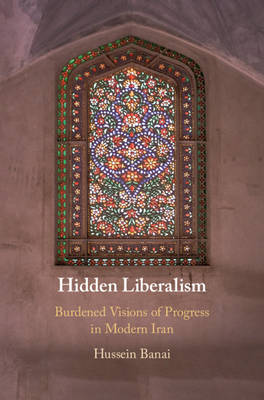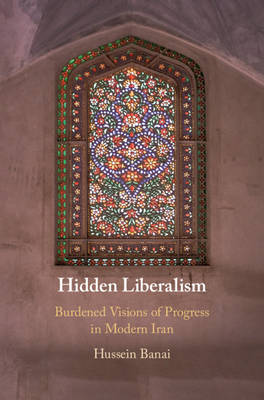
Bedankt voor het vertrouwen het afgelopen jaar! Om jou te bedanken bieden we GRATIS verzending (in België) aan op alles gedurende de hele maand januari.
- Afhalen na 1 uur in een winkel met voorraad
- In januari gratis thuislevering in België
- Ruim aanbod met 7 miljoen producten
Bedankt voor het vertrouwen het afgelopen jaar! Om jou te bedanken bieden we GRATIS verzending (in België) aan op alles gedurende de hele maand januari.
- Afhalen na 1 uur in een winkel met voorraad
- In januari gratis thuislevering in België
- Ruim aanbod met 7 miljoen producten
Zoeken
€ 157,45
+ 314 punten
Uitvoering
Omschrijving
Compared to rival ideologies, liberalism has fared rather poorly in modern Iran. This is all the more remarkable given the essentially liberal substance of various social and political struggles - for liberal legality, individual rights and freedoms, and pluralism - in the century-long period since the demise of the Qajar dynasty and the subsequent transformation of the country into a modern nation-state. The deeply felt but largely invisible purchase of liberal political ideas in Iran challenges us to think more expansively about the trajectory of various intellectual developments since the emergence of a movement for reform and constitutionalism in the late nineteenth century. It complicates parsimonious accounts of Shi'ism, secularism, socialism, nationalism, and royalism as defining or representative ideologies of particular eras. Hidden Liberalism offers a critical examination of the reasons behind liberalism's invisible yet influential status, and its attendant ethical quandaries, in Iranian political and intellectual discourses.
Specificaties
Betrokkenen
- Auteur(s):
- Uitgeverij:
Inhoud
- Aantal bladzijden:
- 188
- Taal:
- Engels
Eigenschappen
- Productcode (EAN):
- 9781108495592
- Verschijningsdatum:
- 10/12/2020
- Uitvoering:
- Hardcover
- Formaat:
- Genaaid
- Afmetingen:
- 152 mm x 229 mm
- Gewicht:
- 421 g

Alleen bij Standaard Boekhandel
+ 314 punten op je klantenkaart van Standaard Boekhandel
Beoordelingen
We publiceren alleen reviews die voldoen aan de voorwaarden voor reviews. Bekijk onze voorwaarden voor reviews.









